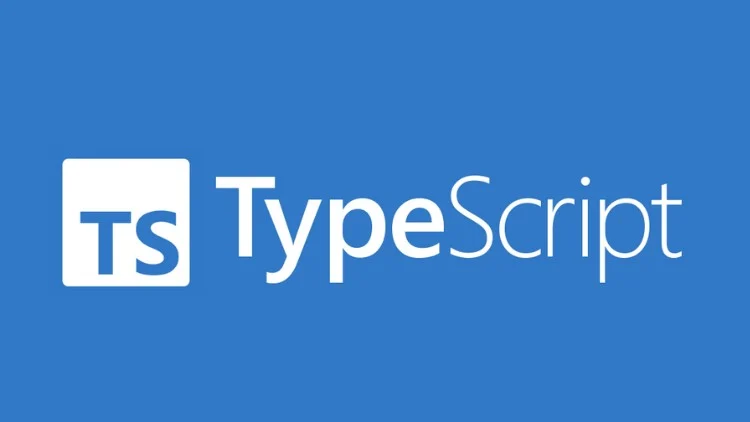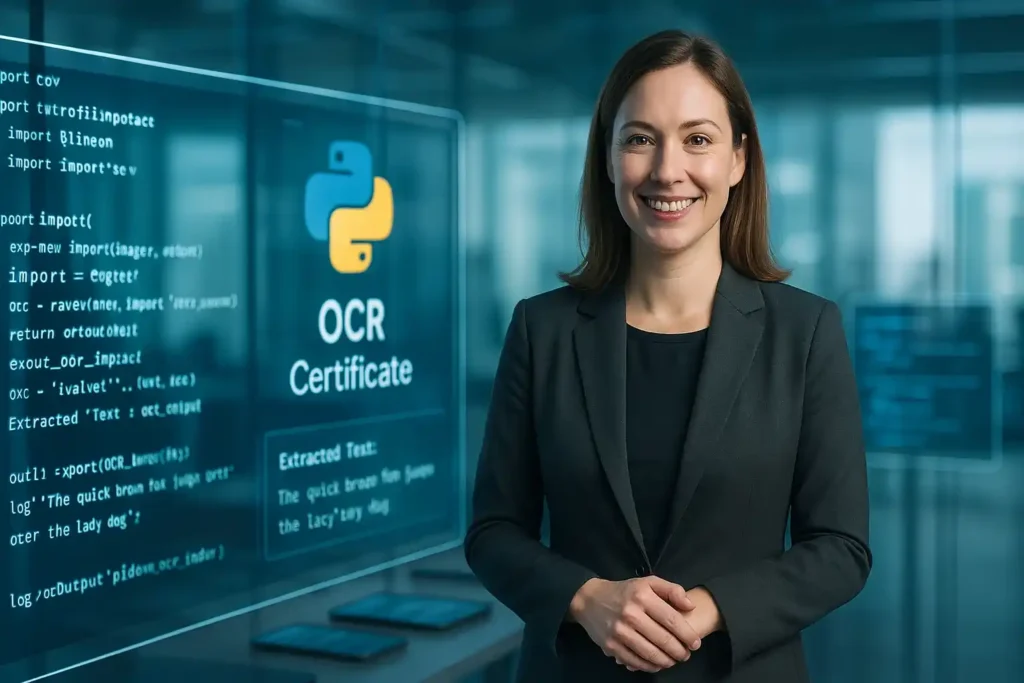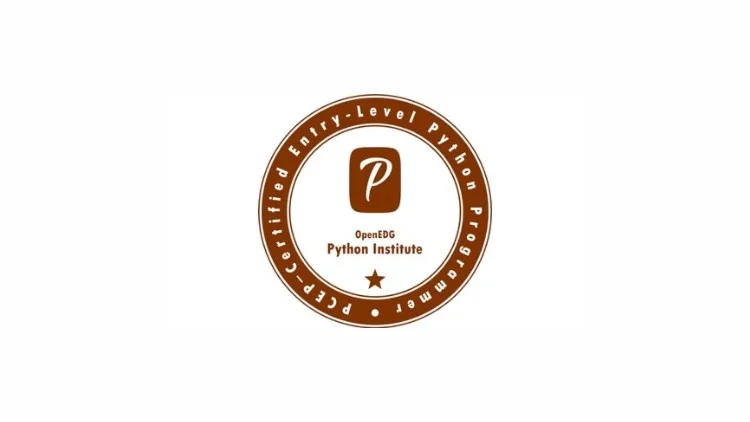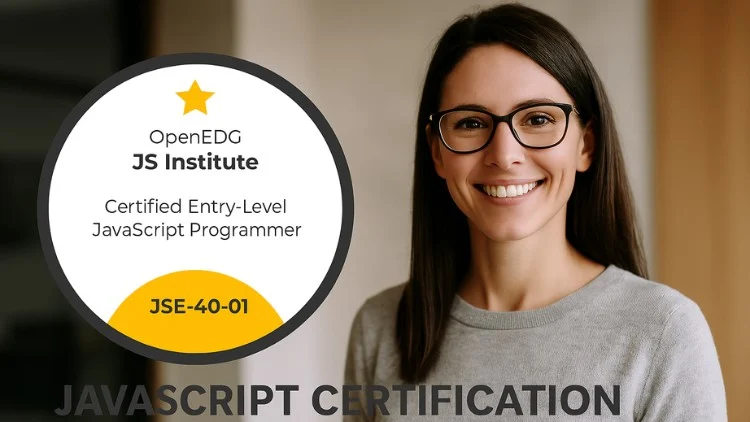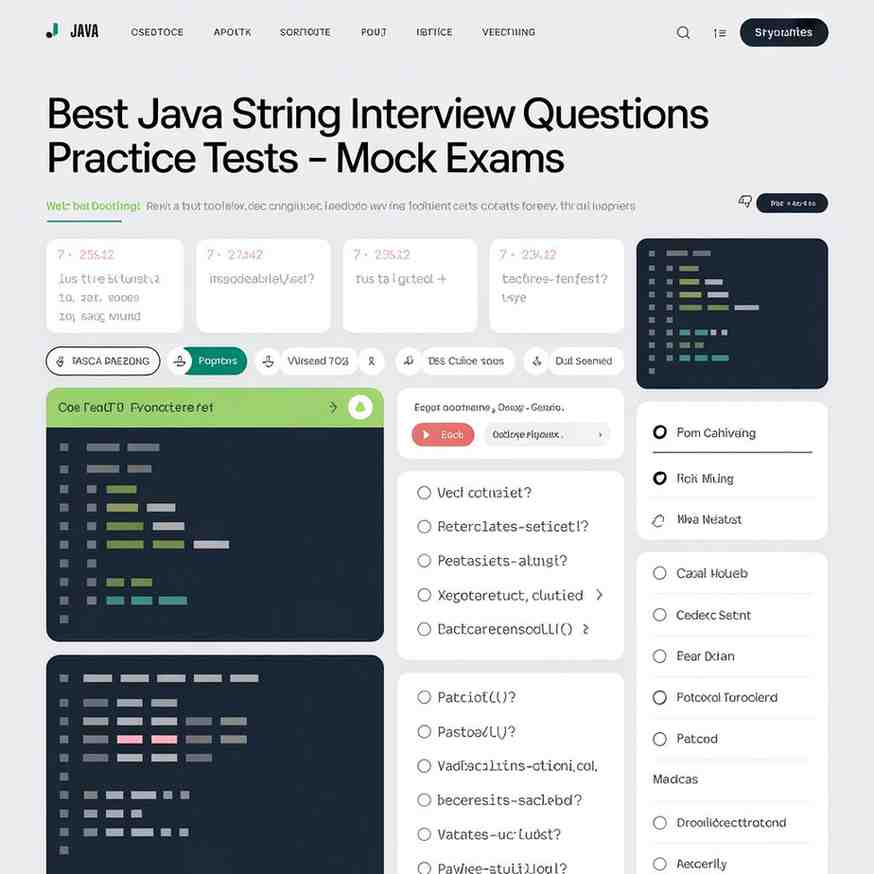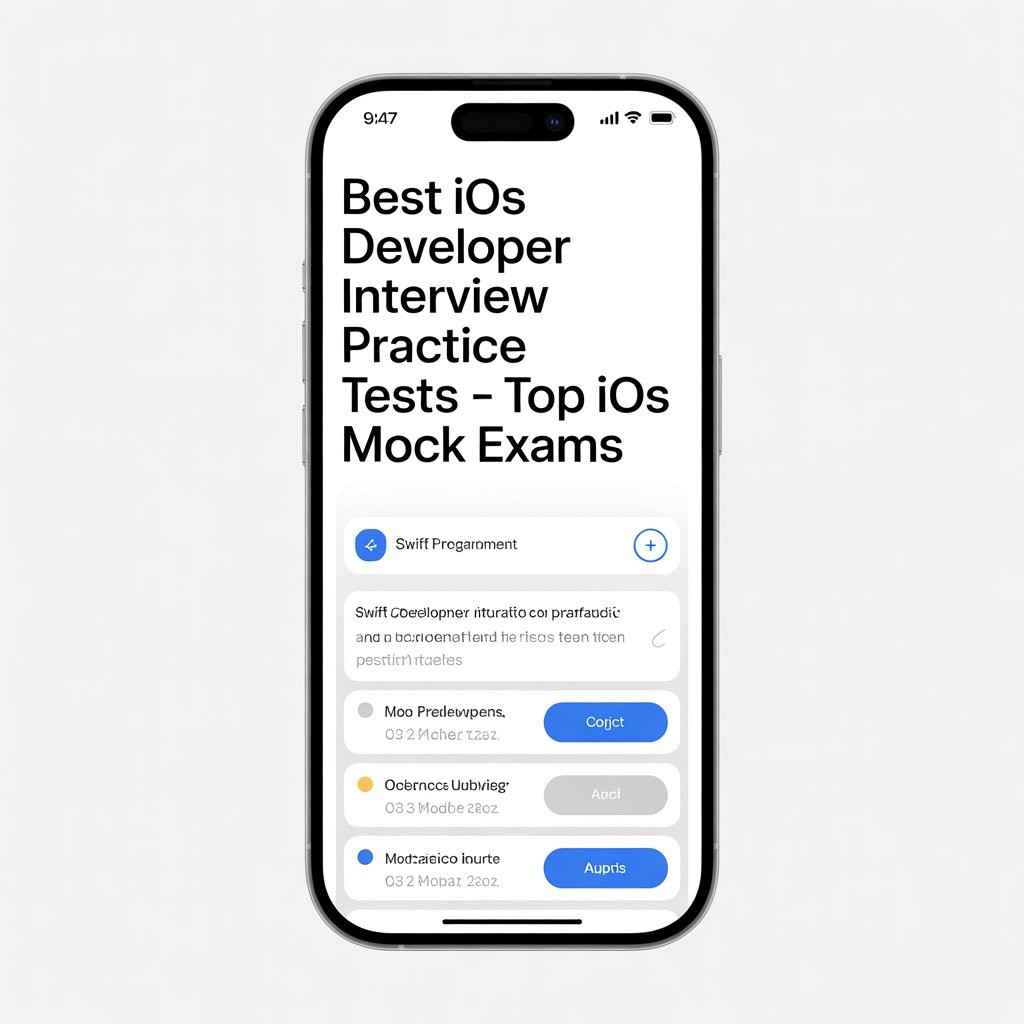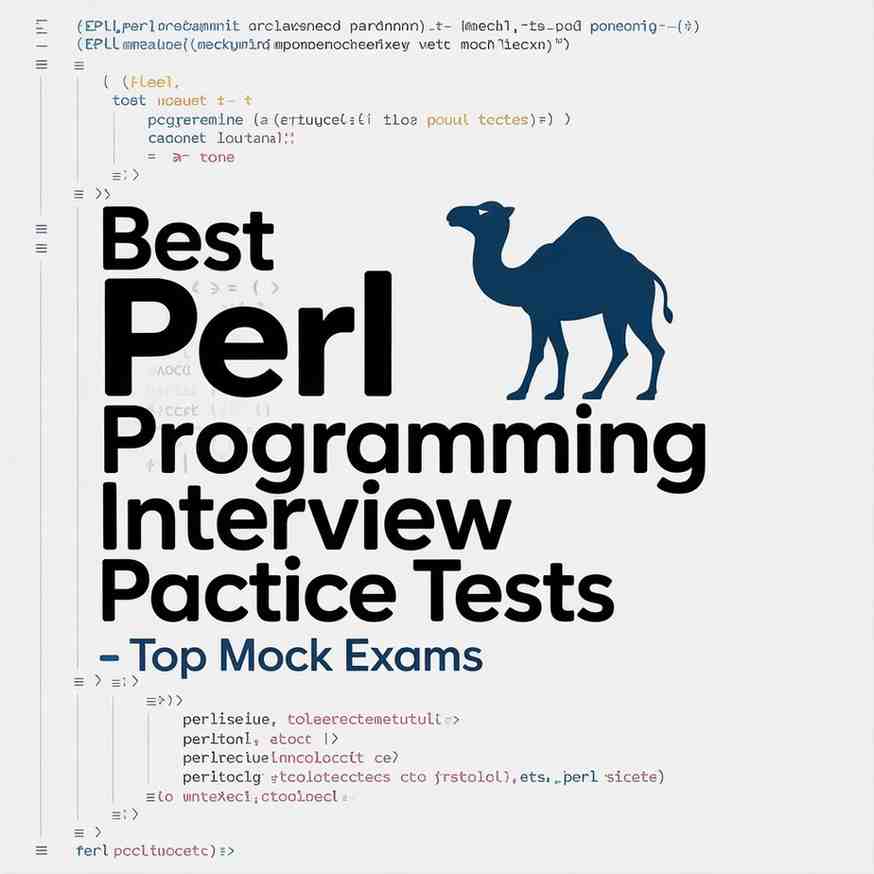Hey there, Python newbie! If you’re dreaming of becoming a PCEP – Certified Entry-Level Python Programmer, you’re on an exciting path to show off your coding chops. The PCEP Certification is like a shiny badge that says, “Yep, I know my Python basics!”—from syntax and data types to functions and loops. But let’s be real: passing the PCEP Certification exam isn’t just about watching a few YouTube tutorials. You’ve gotta get your hands dirty with coding and practice questions that feel like the real thing.
That’s where the Best PCEP Certification Python Practice Tests come in—they’re like your personal gym for Python skills, mimicking the exam’s vibe and toughness. These tests help you lock in those core concepts and get wise to sneaky question tricks. With a gazillion study tools out there, picking the Top PCEP Exam Simulators can feel like a maze. The good ones? They’ve got spot-on PCEP exam questions, and cover everything in the syllabus—think data types, operators, loops, functions, and modules.
This blog’s got your back with a deep dive into the Best PCEP practice exams and mock tests, sizing them up based on:
✅ Question Accuracy & Difficulty Level
✅ User Interface & Exam Simulation Quality
✅ Pricing & Accessibility
✅ Coverage of the Official PCEP Syllabus
Let’s check out the Top PCEP Exam Simulators and figure out which Best PCEP Certification Python Practice Tests will help you nail that exam and snag your Python cred on the first go!
Introduction to PCEP Certification
The PCEP – Certified Entry-Level Python Programmer certification is perfect if you’re just starting out with Python and want to show you’ve got the basics down. It’s like a badge that says, “Yep, I get variables, data types, control structures, functions, and Python’s core syntax!” It’s a great first step into software development, and you don’t need any prior experience—just a solid grasp of Python fundamentals.
To nail the exam, I’d say mix some hands-on coding with brushing up on key concepts. Oh, and don’t skip out on the Best PCEP Certification Python Practice Tests! They’re like a sneak peek at the real deal, helping you get comfy with PCEP-style questions and boosting your speed and confidence. Picking the Top PCEP Exam Simulators is a smart move too—they’ll throw scenarios at you that feel just like the actual exam.
Importance of PCEP Certification
Industry Recognition and Career Foundations:
- Man, getting the PCEP – Certified Entry-Level Python Programmer certification feels like a big win. It’s legit respected in the tech world, showing off your core Python skills. It’s like telling bosses, “Hey, I’ve got the basics down and I’m ready to dive into coding for real.”
Mastery of Core Python Concepts:
- This cert makes sure you’re solid on the must-know stuff—think variables, data types, if-statements, loops, functions, and even dipping into basic modules. It’s the kind of foundation that sets you up to tackle bigger challenges or chase advanced certifications down the road.
Better Job Opportunities and Academic Prospects:
- Having that PCEP Certification in your pocket? It’s like a golden ticket. It opens doors to internships, starter dev jobs, or even cool academic programs. With Python being everywhere in tech, this credential gives you a serious edge over folks who don’t have it.
Real-World Problem-Solving Skills:
- Studying for the PCEP exam sharpens your brain for solving actual coding problems. When you practice with the Best PCEP Certification Python Practice Tests, you’re thrown into scenarios that feel like the real deal. It’s awesome for learning how to debug and write code that’s clean and gets the job done.
Validation of Practical Coding Experience:
- The exam’s all about hands-on coding, not just theory. By using the Top PCEP Exam Simulators, you get to wrestle with questions that mirror the real test. It’s a confidence booster and helps you nail both accuracy and speed.
Competitive Advantage in the Tech Market:
- Employers totally dig candidates who’ve got certifications like PCEP. It shows you’re not just talk—you’ve got the skills and drive to back it up. Whether you’re gunning for a junior dev gig or a tech support role, this cert makes you stand out in interviews and applications.
Eligibility Criteria for PCEP Certification
- Prerequisite Knowledge:
You don’t need a fancy degree or years of coding experience to take the PCEP – Certified Entry-Level Python Programmer exam, which is awesome! Still, it helps to have a few basics under your belt before diving in. Think of it like knowing the rules of the game before you play. You’ll want to:
- Get comfy with the big ideas behind programming, like how logic flows in code.
- Know your way around Python’s syntax—stuff like variables, data types, and operators should feel familiar.
- Have some practice with control flow tools, like if, else, for, and while loops. They’re like the building blocks of coding.
- Be able to handle simple input/output tasks and understand how functions work in Python.
- Understanding of Key Concepts:
The PCEP exam is all about making sure you can write, read, and get the gist of basic Python programs. To ace it, you’ll need to really know your stuff in a few key areas. Here’s what to focus on:
- Python’s data types, like integers, floats, strings, and booleans. They’re the ingredients of your code.
- How to use conditional statements, loops, and logical expressions to make your programs do cool things.
- Functions—how to define them, pass parameters, return values, and deal with scope.
- The basics of error handling with try and except blocks to keep your code from crashing.
- Getting familiar with modules and how to pull in Python’s built-in libraries to make your life easier.
- Exam Preparation:
There’s no strict “you must do this” to sit for the exam, but trust me, you’ll want to prep like it’s a big game day. Getting those Python fundamentals down pat is key, and the best way to do that is through focused study and lots of practice. Checking out the Best PCEP Certification Python Practice Tests and Top PCEP Exam Simulators can really level up your prep.
- Practice tests are like a dress rehearsal—they mimic the real exam vibe and help you spot where you need to brush up.
- Exam simulators go the extra mile track your progress, so you know exactly how you’re doing.
- Real-World Experience:
You don’t have to have hands-on coding experience, but let’s be real—it makes a huge difference. Getting your hands dirty with actual code will boost your confidence and skills. Here’s what you can try:
- Write little Python scripts or programs to flex your coding muscles.
- Tackle beginner-friendly projects that use loops, functions, and simple data structures. It’s like building a mini app!
- Practice debugging or tweaking existing Python code to sharpen your problem-solving chops.
- Exam Details:
The PCEP certification exam is a 45-minute sprint with 30 questions, mixing multiple-choice and multiple-response formats. There’s no age limit, no degree required, and no need to have a pro coding job. But to walk away with that certification, you’ll need a solid grip on the Python basics we’ve talked about. So, study up and you’ll be ready to crush it!
Exam Structure for PCEP Certification
Getting ready for the PCEP – Certified Entry-Level Python Programmer certification feels like a big step, but knowing what the exam’s all about makes it way less daunting. This test checks if you’ve got the basics of Python programming and coding down pat. Here’s a quick rundown of what the exam looks like, the main stuff you need to study, and how to prep like a pro using the Best PCEP Certification Python Practice Tests and Top PCEP Exam Simulators to walk in feeling ready and sure of yourself.
Exam Structure
Exam Format:
- The PCEP – Certified Entry-Level Python Programmer certification exam mixes multiple-choice and multiple-response questions to test your Python basics.
- These questions dive into your understanding of core concepts like variables, data types, control structures, functions, and error handling.
- Some questions might ask you to pick more than one correct answer, really putting your Python syntax and logical problem-solving skills to the test.
- It’s all about checking if you can write, read, and understand simple Python programs with confidence.
Number of Questions & Duration:
- You’ll face around 30 questions on the PCEP Certification exam, though this could vary slightly based on Python Institute updates.
- You’ve got 45 minutes to get through them, so it’s a bit of a sprint to show you can apply your Python skills under time pressure.
- Using Top PCEP Exam Simulators is a great way to get used to the exam format and practice answering questions with the clock ticking.
Passing Score:
- To pass the PCEP Certification, you’ll generally need about a 70% score, but this might shift a bit depending on Python Institute changes.
- Nailing a high score means having a solid handle on key topics like functions, loops, and data types.
- To boost your chances, try the Best PCEP Certification Python Practice Tests, get hands-on with coding, and use study guides tailored to the PCEP syllabus.
Question Types
Multiple-Choice (Single Answer)
- This is the most common question type in the PCEP – Certified Entry-Level Python Programmer certification exam.
- You’ll pick the best answer from a few options, like choosing the right key for a lock.
- Topics cover core Python stuff—think data types, operators, control flow, and basic functions.
- Practicing with Best PCEP Certification Python Practice Tests can make these feel like second nature.
Multiple-Choice (Multiple Answers)
- These questions ask you to select all the correct answers, so you’ve got to be on your game.
- They often dive deeper into things like Python syntax, error handling, or module usage.
- It’s like solving a puzzle where multiple pieces fit, and you need to find them all.
- Top PCEP Exam Simulators are a great way to get comfortable with this format.
Scenario-Based Questions
- These feel like real-world coding challenges, which makes them kinda fun!
- You might debug a Python code snippet, predict a function’s output, or analyze how code behaves.
- They test how well you can apply Python basics to practical programming tasks.
- Using Best PCEP Certification Python Practice Tests will help you tackle these like a pro.
Knowledge-Based Questions
- These focus on your understanding of Python’s nuts and bolts—terminology, syntax rules, and best practices.
- Expect questions on things like variable scope, data structure behavior, or function definitions.
- It’s like knowing the rules of a game before you start playing.
- Top PCEP Exam Simulators can help you nail these concepts.
Practical Application
- No live coding here, but you’ll need to read and understand Python code snippets.
- Tasks might include spotting syntax errors, figuring out loop outputs, or analyzing conditional statements.
- It’s like being a code detective, piecing together what’s going on without writing new code.
- Prep tools for the PCEP – Certified Entry-Level Python Programmer certification will sharpen these skills.
Domains Covered for PCEP Certification
Getting ready for the PCEP Certification can feel like a big step, but it’s totally doable with the right focus. The PCEP – Certified Entry-Level Python Programmer certification exam checks if you’ve got the basics of Python down and can use those core ideas in real coding moments. Knowing what topics to study helps you prep smarter, not harder. Here’s a quick look at the main areas the exam covers, along with roughly how much each part counts for:
| Domain | Percentage of Items |
|---|---|
| Cloud Architecture and Design | 30% |
| Deployment and Provisioning | 22% |
| Security and Optimization | 20% |
| Application Development and Management | 18% |
| Monitoring and Debugging | 10% |
Additional Information
- Languages Offered:
The PCEP Certification exam is mainly in English, but you might find it in other languages too, depending on the platform you’re using. To do well, just make sure you’re super comfortable with Python basics in whatever language you pick. - Preparation Recommendations:
You don’t need any official requirements to go for the PCEP – Certified Entry-Level Python Programmer certification, but having some hands-on Python experience is a big plus. I’d say get cozy with coding and testing Python regularly, dive into the official Python docs, and definitely try out the Best PCEP Certification Python Practice Tests and Top PCEP Exam Simulators. They’re awesome for getting a feel for the real exam and boosting your confidence.
If you’re looking to prove your Python chops, the PCEP Certification is a fantastic way to show off your skills. It’s perfect for anyone wanting to solidify their coding basics, boost their resume, and catch the eye of employers in a crowded tech world.
Importance of Best PCEP Certification Python Practice Tests
Getting ready for the PCEP certification takes more than just studying Python concepts. I found that diving into the Best PCEP Certification Python Practice Tests and Top PCEP Exam Simulators really makes a difference. They helped me sharpen my practical skills, boost my knowledge, and feel confident walking into the exam.
How Do PCEP Certification Python Practice Tests Help?
Knowledge Assessment:
- Diving into the Best PCEP Certification Python Practice Tests is like having a trusty map for your Python journey. They help you spot those sneaky gaps in your grasp of stuff like data types, control flow, functions, and error handling. Figuring out where you’re shaky makes studying way smoother—you can zero in on the key Python skills you need to nail the PCEP Certification exam without wasting time.
Exam Familiarity:
- Jumping into Top PCEP Exam Simulators is like getting a sneak peek at the real deal. You’ll get a feel for the exam’s format, timing, and those tricky question vibes. It’s a game-changer for calming those pre-test jitters, boosting your time management, and prepping you for the actual test-day setup. Knowing the exam’s ins and outs means no big shocks when you’re in the hot seat, and it gives you a solid confidence kick.
Targeted Learning:
- The feedback from PCEP practice tests is like a personal coach pointing out exactly where you need to step up—like maybe loops, functions, or exception handling are tripping you up. This kind of focused prep lets you tailor your study sessions to shore up those weak spots, making your study time super effective and straight to the point.
Confidence Building:
- Getting cozy with PCEP Python Practice Tests is like training for a big game. Practicing exam-style questions under timed pressure builds that “I’ve got this” vibe. Running through real-deal test scenarios helps you stay cool and ready when the actual exam rolls around. Every practice round you crush boosts your self-assurance, keeping you steady and sharp for the PCEP Certification test day.
Features to Look for in the Top PCEP Exam Simulators
Comprehensive Question Bank:
- A Top PCEP Exam Simulator ought to have a big ol’ pile of questions that hit all the main Python topics you’ll see on the PCEP Certification exam. We’re talking basics like data types, control structures, functions, and error handling. A solid question bank makes sure you’re ready for every little nook and cranny of the PCEP test.
Performance Tracking:
- A proper PCEP Exam Simulator keeps tabs on how you’re doing as you go. It shows you what you’re acing and where you’re tripping up, so you can tweak your study plan to focus on what matters. It’s like a roadmap to keep your prep sharp and on point.
Realistic Exam Simulation:
- The top-notch PCEP Exam Simulators feel just like the real deal—same format, timing, and question toughness. Practicing in those conditions takes the edge off exam nerves and gets you ready to tackle the PCEP Certification exam like a pro.
Mobile Compatibility:
- Lots of folks want to study on the go. Picking a PCEP Exam Simulator that works on your phone means you can sneak in practice whenever, wherever. It’s super handy for squeezing study time into your hectic days and keeping up the momentum.
Top PCEP Exam Simulators
| Simulator | Price | Total Questions | Mock Exams | Access Period | Key Features |
|---|---|---|---|---|---|
| Gururo PCEP Practice Test | $9.99 | 240+ | 10 | 1 Year |
|
| Whizlabs PCEP Practice Test | $25 | 300 | 5 | 3 Months Access |
|
| A Cloud Guru PCEP Practice Test | $35 | 400 | 6 | 6 Months Access |
|
| Udemy PCEP Practice Test | $44.99 | 150+ | 6 | Lifetime Access |
|
Why Choose Gururo's PCEP Certification Python Practice Tests
If you’re looking for a solid way to prep for your PCEP Certification, I gotta say, Gururo’s PCEP Certification Python Practice Tests really shine. They’re super thorough, budget-friendly, and honestly feel like one of the Top PCEP Exam Simulators out there. Perfect for getting you ready without breaking the bank!
| Feature | Gururo Simulator | Other Mock Tests |
|---|---|---|
| Realistic Questions | ✅ Questions crafted to replicate real exam scenarios, ensuring a close-to-exam experience. | ❌ Limited question coverage, often not reflective of the actual exam. |
| Latest Framework Alignment | ✅ Fully updated to reflect the latest framework and guidelines. | ❌ May use outdated content, reducing relevance to the current exam. |
| Unlimited Practice Attempts | ✅ Practice as many times as needed, without restrictions. | ❌ Limited by platform rules or capped access. |
| Affordable Pricing | ✅ Budget-friendly, offering exceptional value for premium features. | ❌ Expensive, with fewer benefits included. |
| User-Friendly Interface | ✅ Intuitive and easy to navigate, suitable for all experience levels. | ❌ Clunky and difficult to use, particularly for beginners. |
| Performance Tracking and Analytics | ✅ In-depth insights into your strengths and weaknesses to fine-tune preparation. | ❌ Minimal or no tracking features to monitor progress. |
| Variety of Question Types | ✅ Includes multiple-choice, scenario-based, and tricky questions to prepare for all possibilities. | ❌ Lacks variety, focusing on only basic multiple-choice questions. |
| Responsive Across Devices | ✅ Fully accessible on mobile, tablet, and desktop, enabling preparation anytime, anywhere. | ❌ Limited compatibility with mobile devices, restricting flexibility. |
| Exam Simulation Accuracy | ✅ Simulates real-time exam conditions, including time constraints and pressure. | ❌ Often lacks realistic simulation, reducing effectiveness. |
| Comprehensive Coverage of Topics | ✅ Covers all concepts, from service value system to guiding principles and practices. | ❌ Limited focus, leaving some topics untouched or underrepresented. |
| Learner Support | ✅ Dedicated support team available for guidance and resolving doubts. | ❌ Poor or non-existent support, leaving learners without help. |
| Money-Back Guarantee | ✅ Risk-free purchase with a satisfaction guarantee. | ❌ NO guarantees, adding financial risk for learners. |
Conclusion: Top PCEP Exam Simulators
When chasing your PCEP Certification, picking the Top PCEP Exam Simulators of 2025 is just the start. To really shine, you’ve got to make the most of it and think about what’ll level up your prep.
Final Thoughts on Choosing the Right Simulator:
A solid mock exam simulator can seriously up your game. But the “best” one isn’t just about fancy features—it’s about what clicks with how you learn and what you need.
Here’s what to keep an eye out for:
✅ Realistic Practice Exams – Feels like the real deal.
✅ Progress Tracking – Shows you where you’re killing it and where you need work.
✅ Provider Reputation – Look for good reviews, success stories, and a trustworthy vibe.
✅ User-Friendly Technology – Should be easy to use and work smoothly.
Making the Most of Your Simulator:
Once you’ve snagged one of the Top PCEP Exam Simulators, it’s time to put it to work!
1️⃣ Create a Study Plan – Set up regular study sessions, focusing on your weak spots.
2️⃣ Attempt Multiple Mock Tests – Get comfy with the exam setup and boost your confidence.
3️⃣ Analyze Score Reports – Dig into those reports to see what you’re acing and what needs more effort.
4️⃣ Implement Feedback – Tweak your study approach based on what the simulator tells you.
5️⃣ Stay Consistent – Keep at it regularly to really nail the exam content.
The Road to Success:
With a smart plan, steady effort, and clever use of your simulator, nabbing that PCEP Certification is totally within reach.
Every little step you take gets you closer to the finish line. Stay locked in, keep practicing, and don’t let go of your goal!
Wishing you all the best with your PCEP Certification prep! 🌟
FAQs
What is the PCEP certification?
PCEP (Python Certified Entry-Level Programmer) validates foundational Python programming skills.
Who should take the PCEP exam?
Beginners and entry-level programmers who want to demonstrate basic Python proficiency.
Are there prerequisites for the PCEP exam?
No formal prerequisites, but basic programming knowledge is recommended.
How long is the PCEP exam?
Typically, the exam duration is around 45 minutes.
Is the PCEP certification internationally recognized?
Yes, it’s widely accepted as a benchmark for Python programming fundamentals.
What does the Gururo PCEP Practice Test include?
240+ practice questions, 10 mock exams, and performance tracking.
How long do I get access to Gururo’s practice tests?
1 Year Access once purchased.
Is the Gururo course mobile-friendly?
Yes, you can practice anytime, anywhere on mobile devices









